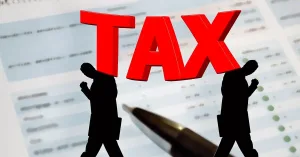In December of 2020, the Marijuana Opportunity, Reinvestment, and Expungement Act (MORE Act) passed the House of Representatives — this could lead to massive change for the cannabis industry in upcoming years. The Cannabis industry is now prepped to grow into an 84 billion dollar industry by 2028. Science continues to prove that cannabis is a medicine that really works, and as the cannabis industry keeps on growing, you see the proof — Cannabis is going mainstream.
As federal reform on cannabis proceeds, and national and international markets continue to grow, the reality is that accountants and accounting firms should be taking steps to prepare their practice for cannabis clients.
However, it seems the biggest hurdle accountants face are the cannabis clients themselves. By their very nature, long-time users of cannabis and those who sell cannabis see themselves as rebels, and with good reason. As you can see from the image above this blog post, marijuana did not have a good reputation until just recently. In fact, we were taught that it was evil, dangerous, and to be avoided at all costs. There are still people in prison as we speak for marijuana/cannabis-related convictions. Long-time believers in the healing power of cannabis are usually also people who naturally don't trust authority.
So how can you, as an accountant, gain the trust of current and potential cannabis clients? You can start by helping to debunk myths cannabis clients believe, such as the 5 myths listed in this article from Dope CFO.
The most troublesome of those 5 myths believed by cannabis clients is that accounting isn't important. They are at a place they have never been before and it is your job as an accounting to lead and educate them on the importance of their accounting, finances, and understanding their tax responsibilities. You may even become a hero to cannabis clients when they realize that you have saved them a ton of time, headaches, and maybe even legal troubles.
The biggest challenge is that cannabis businesses have more complicated finances than most companies you deal with due to more compliance requirements and complex tax laws. IRS Tax IRC 280E classifies cannabis as a Schedule I illegal substance, preventing cannabis retailers from deducting operating expenses. Accounting professionals can help cannabis business owners remain in compliance with 280E while maximizing the cost of goods sold, therefore maximizing tax deductions. In order to increase their deductions while maintaining 280E compliance, many cannabis business owners have organized their structure into two or more businesses. They'll need help figuring out how to organize their business and manage the extra layer of complexity that multiple businesses can bring.
It's time for accounting professionals to embrace the cannabis industry. As accountants, you have the opportunity to be at the forefront of this exciting industry growth and have the ability to lend a sense of legitimacy to your clients' businesses. It's never been a more exciting time to keep your business in the green as a cannabis accountant.
But consider this: Before you can educate your current and prospective cannabis clients, you must educate yourself and your accounting firm in the language of cannabis. In this article from the website of the AICPA, the language of cannabis and cannabis-related products and the legality of each variation is explained below:
Cannabis? Marijuana? THC? CBD? Hemp?
Like most industries, the cannabis industry has its own vocabulary. Cannabis and marijuana both refer to the genus of plant that produces THC and CBD. THC, short for tetrahydrocannabinol, refers to the psychoactive substance found in varying quantities in cannabis. CBD, the abbreviation of cannabidiol, produces no euphoric effect but is used for an assortment of ailments. Hemp, by legal definition, refers to various parts of the Cannabis sativa L. plant that contain no more than .3% THC by dry weight.
Legality varies
Federally, THC and CBD are Schedule 1 controlled substances — the same schedule as cocaine and heroin — defined as having no currently accepted medical use and a high potential for abuse. However, 33 states have laws permitting the growth, sale, and processing of cannabis in different forms. While several states allow recreational use, some allow use for medicinal purposes only. To further confuse matters, certain states allow CBD preparations only, while others allow CBD and THC preparations for medicinal purposes. And while hemp-based CBD products are federally legal, some states still ban them.
What this means for accountants is that you need to consider each cannabis-relate client individually and make sure you are providing the exact services they need for the type of cannabis product they sell and that you are helping them adhere to the proper tax laws.
This is a whole new frontier for all of us. The Rules of Thumb blog from MoneyThumb chooses to be excited and optimistic about this newly legit industry. If accountants can take on the attitude of discovery it can be a very exciting and profitable time for all parties involved.





















Add comment